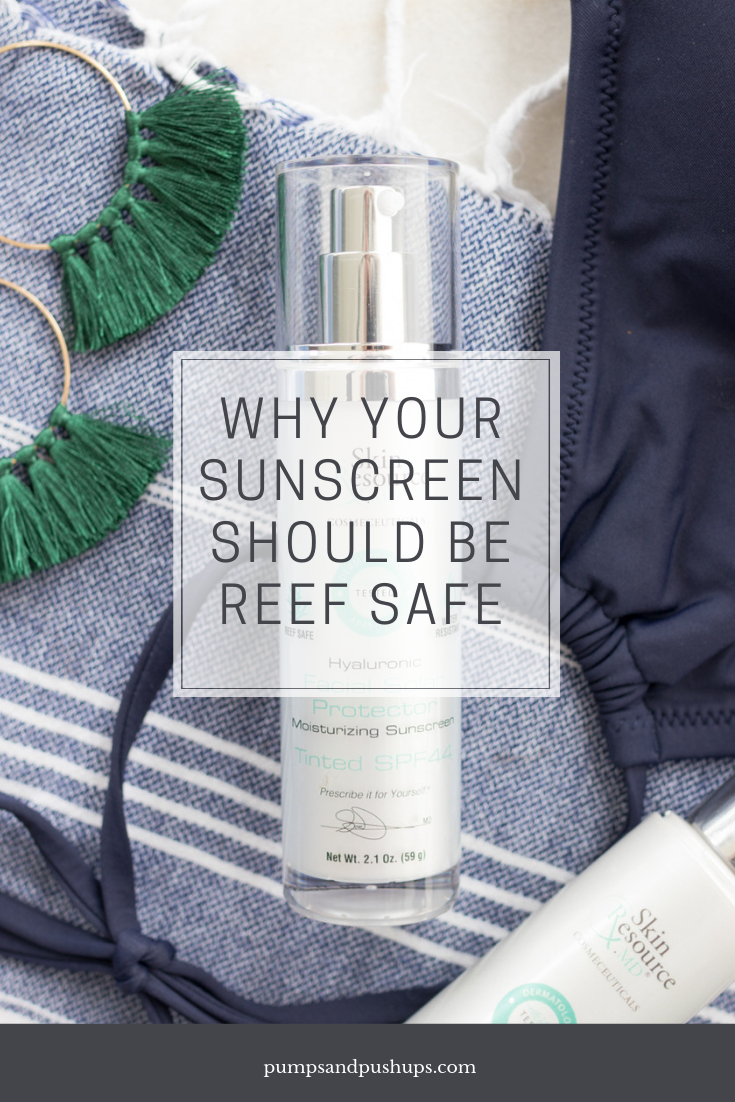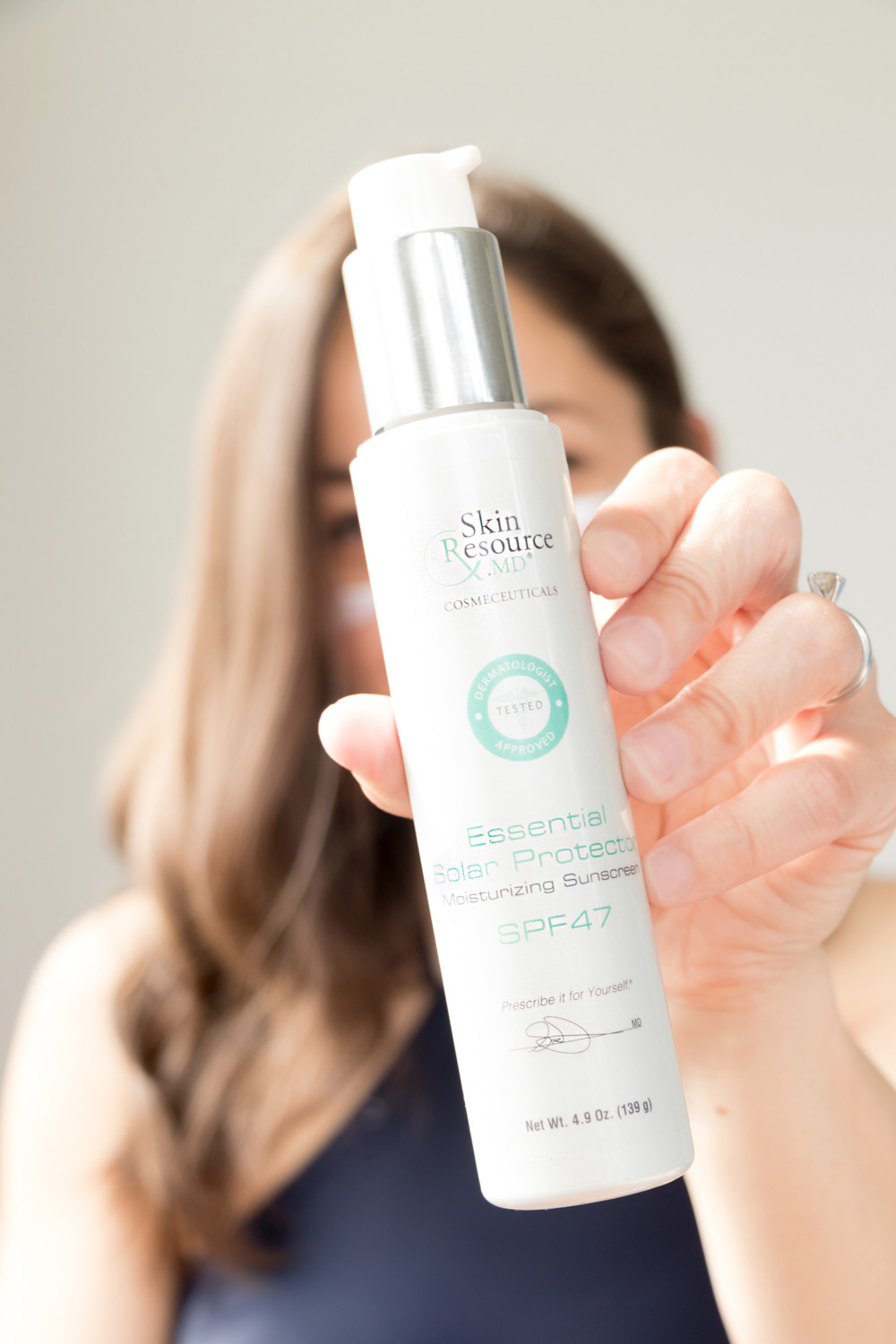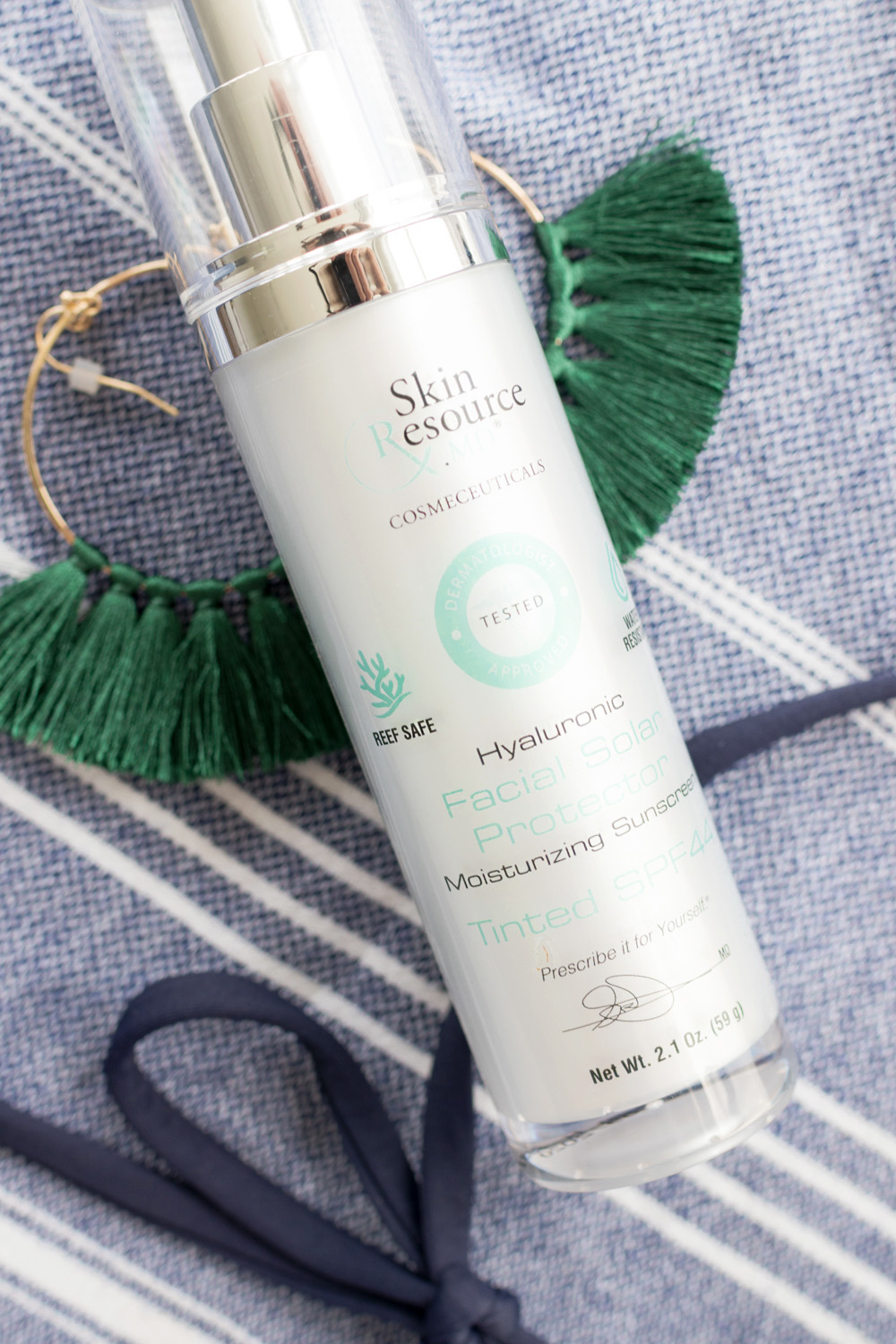WHY YOUR SUNSCREEN SHOULD BE REEF SAFE
We all know sunscreen is a must for skin protection. Personally, I slather it on daily. I’ll also admit, I’m not always the most informed consumer. Last summer when sunscreen was big in the news, I found myself not knowing a thing about what’s in the sunscreen I was using daily, and realized that something I thought was a good thing, was maybe a bad thing. So what’s a girl to do? Do a little research and learn a thing or two.

Safe Sunscreen
The first thing that caught my attention from the news about sunscreen was of course, the cancer causing chemical ingredients being used in popular brands. (The ones I used for years). I was also guilty of using the aerosol brands that burst those harmful chemicals all around for you to breath in as well. There is a long list of chemicals deemed as harmful, used in sunscreens – but I’m no expert and I won’t go into detail about them. The decision I made for myself, was to change to a brand that uses physical sunscreen, titanium dioxide, and zinc oxide, instead of chemical blockers. They work by forming a protective barrier on your skin, that scatters UV rays.

Sunscreens Are Killing Coral Reefs
But back to those chemicals, what also caught my attention while doing research, was two of those are not only bad for you, they’re bad for the big beautiful oceans we all swim in every summer. Oxybenzone and octinoxate have been found to be one cause of dying coral reefs. They not only cause bleaching of the coral, they allow viruses to thrive which can kill coral. Another nasty ingredient, parabens have been found to be toxic to coral reefs (and you too)! I was shocked to learn that annually, it’s estimated that 14,000 tons of sunscreen is deposited into the ocean from swimmers. Highly traveled areas like Hawaii went as far to outlaw the use of products with oxybenzone and octinoxate in an effort to save the coral reefs.

Reef Safe Sunscreen
So what can you do? First, look for products that are either labeled as reef safe, or don’t list the offending ingredients. I personally use Skin Resource.MD’s Essential Solar Protector and Hyaluronic Facial Solar Protector. Both of which are labeled as reef safe, and use physical UVA sunscreen.
Sunscreen is great, and necessary for protecting yourself against skin cancer and the signs of aging. However, you can also lessen your use of sunscreen by wearing UPF protective clothing. I wrote about Lilly Pulitzer’s UPF clothing last year (and I still love that dress).
You can also use other physical forms or protection by wearing a hat, or finding shade when possible.
Daily Use of Reef Safe Sunscreen
I’m not jumping into the ocean every day, but I do want to make sure a product I’m using daily is safe. If it’s not safe for the ocean, there’s a good chance it’s not safe for me either. So I’m using my reef safe sunscreen, every day.


